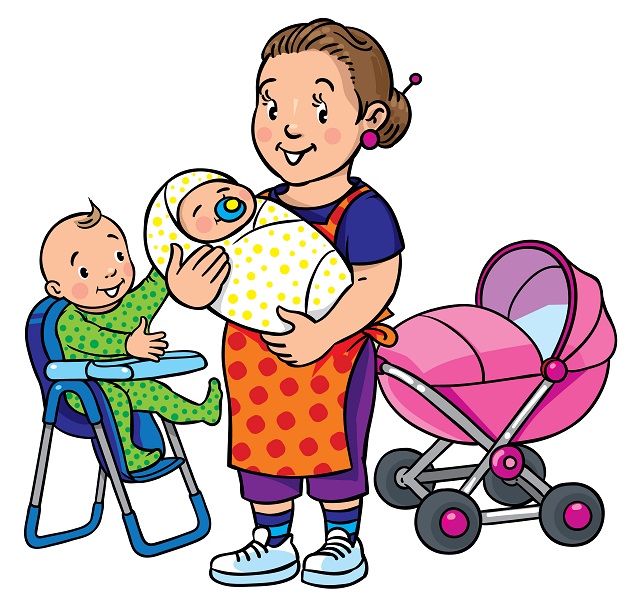Permissive Parenting
Permissive Parenting
What is permissive parenting? First off, there are few rules and behavioral regulations for the child to adhere to in the household when its dominated by permissive parents. Standards are rare and loose in order for the child to feel comfortable and free. Even if there are standards and regulations for the child to abide by, they are often loosely and inconsistently enforced. Permissive parents often seek to be their children’s friend and constantly display affection and tender love towards their children by showering them with gifts and interactions on a constant basis. Sometimes, they will utilize such practices as bribery in order to tempt the child into calming down after a dispute or to keep the child happy and satisfied.
Rationale for permissive Parenting
Sometimes, parents who support permissive parenting were born in authoritarian families where they are strictly monitored and disciplined at all times. Thus, these parents had many unpleasant memories of their childhood and they would opt to provide their children with a more joyful childhood than their own experience. Other parents may have a strong desire to be close friends with their children.
Benefits:
- Reducing Frequency of conflicts within the family
As parents will actively seek to avoid conflict or confrontations with their children, it is in their nature to give in to their children’s demands whenever possible. This happens even if the children are clearly in the wrong. In doing so, permissive parents have displayed a fondness for peaceful and amiable relationships within the family. However, they would possible forsaken
- High confidence and self-esteem levels within Children.
Since there are few fights and disputes within the household, the children are not afraid to voice out as there will not be intimidated into silence by their parents’ criticism.
- Developing the children’s creativity.
Permissive parents grant their children free reign to develop their imagination and creativity. While other more authoritative parents would criticize their children for not living up to expectations and suppressing their children’s ambitions; permissive parents prefer to give their children autonomy over their lives. This would encourage the children to be independent and hopefully develop their imagination and creativity as well due to the lack of external influences and pressure on them.
Negative Consequences:
- Increased likelihood of children making poor decisions
Since the parents that advocate permissive parenting rarely establishes or enforces strict rules and standards in the family, they are unable to serve as role models for the children to derive positive problem-solving and decision making skills from.
- Increased risk of delinquency and illegal substance abuse
Studies have revealed links between permissive parenting and increased alcohol usage by teenagers. They have also showed that permissive parenting may result in increased risk of school misconduct in children as well.
- Higher tendency to display low achievements in various areas
Due to permissive parenting, parents often hide their expectations from their children and rarely demand much from their children. This is undesirable as the kids do not have goals and specific targets to work towards. This also means that they do not possess the drive to work towards goals and achievements as they did not have any prior experience of working towards an achievement. As such, permissive parenting may result in children being unmotivated and laid-back.
- Bad time management skills and habits
A study of British 10-11 year olds report t that there are links between permissive parenting and excessive television usage. Children with permissive parents are 5 times more likely to watch more than 4 hours of television per day. This makes sense because of the lack of rules and regulations at home. As a result of the parents not caring, the children are never punished or rebuked for spending excessive amounts of time on the television, playing computer games or eating copious amounts of junk food. Without their parents to discipline or even teach them the negative consequences of their excessive ways, these children would not understand the importance of moderation and never learn to keep their greed in check. This can result in health and mental issues such as video game addiction, obesity and failing eyesight.
Solutions to improve Permissive Parenting
- Implement fundamental and basic household rules
This should be compulsory for all families. This is because our children require instructions to follow due to their lack of maturity and knowledge at their age. It is the parents’ responsibility to establish guidelines for them to follow and abide by.
- Enforce those rules
Although this might seem to go against the core essence of permissive parenting, it is necessary. We do not have to scold or punish our children when they break the rules however, we just have to be firm. Sometimes punishment is necessary however, but we just have to refrain from abusing the children. Curfews or confiscation of their gadgets might be equally effective. More importantly, justifying the punishments are necessary so that our kids do not feel as if we have a vendetta against them.
It takes a village to raise a child !
Join our WhatsApp Groups or Facebook Group to interact with parents about infant care/child care in Singapore..









